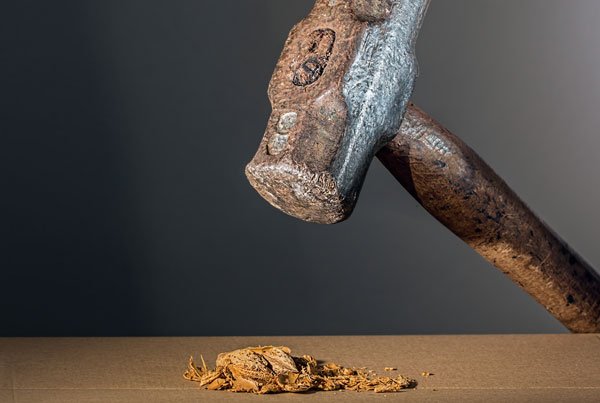
You don’t have to be the greatest salesperson in order to make a sale. You simply need to master and memorize the techniques. Keep in mind that in order to prevent sales rejection, you need to close the sale the moment you begin your presentation. In this episode, Alex Mandossian shares the teachings of Ted Thomas on trial closes, which is to plan your trial closes in advance to prevent embarrassment and prepare to triple your conversion. The obstacles you’re facing are opportunities if you look at them the right way. Build up that sales strategy to have your customers clamoring for more.
—
Listen to the Podcast Here:
Secret To Prevent Sales Rejection
In this episode, you’ll learn three key insights which I believe are critical to making you a highly skilled ethical influencer. You’re going to discover why closing sales starts not at the end but the moment you start presenting. You’ll also learn why trial closes prevent embarrassment of personal rejection because you’re closing as you’re presenting. It doesn’t feel pushy and it’s not making you look bad. There are tested sentences that sell in the English language and you’ll get a sample of those for free.
You’ll learn why planning those persuasive sentences in advance can triple your sales conversion. After all, it’s not about ability. It’s about being in the right frame of mind and having the right technique. Technique can be learned. Ability will be improved when you have the right technique.
The Ted Thomas Story
I’m going to share with you a story about my friend, Ted. He is known industry-wide to be a closer, meaning he closes sales and he seals the deal. He doesn’t do it by being pushy. He doesn’t do it through manipulation. He doesn’t even do it at the end of his presentation, although it seems like he does. People are fascinated when he’s in front of a room with 500 people and over 300 of them are following him like the Pied Piper of Hamelin to the back table and he closes them.
Most people don’t know what he’s done. His full name is Ted Thomas. If you’ve never heard of him, you’re going to learn a lot about him. The closes that he does is not in the final fifteen minutes of a presentation. They are trial closes and he does hundreds of them during a 90-minute presentation. They’re trial closes and statements.
Here’s the principle because anyone can learn this technique. You don’t have to have sales ability to learn sales technique. You just have to memorize sales technique like any technique, driving, riding a bicycle or learning a few songs if you play a musical instrument.
It’s all about technique. It’s not about skill and ability. You’re not born a great closer or salesperson. You’ll learn to become one through technique. Most people aren’t willing to go through that process or most people don’t know what that process is. It’s usually trial and error.
I want to make it all about trial closes and statements. That’s what Ted Thomas is all about. He’s a dear friend of mine. He has a book called Trial Closes and Statements.
No one is born a great closer or salesperson. You’ll learn to become one through technique. Share on XThe key principle behind closing a sale is not to take a sledgehammer and split the rock in half at the end of the presentation. That’s where most people freeze. It’s a deer in headlights. You know that moment where you go from content to the close and people freeze up. They change their mannerisms. They feel uncomfortable.
It’s not a seamless process. If you know what I’m talking about then if you read this episode and you get the gift I’m going to give you at the end, you will begin to obliterate the potential objections and even the questions through a sequence of trial closes that you can create for yourself. You can get many ideas not only from Ted but from me because I have my own set of persuasive selling sentences that I utilize for the virtual and the physical stage.
Ted will be on stage and he’ll give a 90-minute talk on his topic and the content is not as important as what he does in between. He weaves these trial closes and they’re very simple statements. I like to give them in the power of three. He doesn’t always do that, but I do it because you know the remarkable power of three if you read the previous episode. You can look it up on iTunes or maybe at AllSellingAside.com.
Trial closes are not the final close. Trial closes are like having a little hammer and tapping a rock. Imagine tapping that rock 108 times gently and getting a yes. After the more or less 108th tap throughout your presentation, all of a sudden you get the yes and that rock splits open. You win the heart of the prospect and they become a customer, client, patient, student or a member, whatever you call them.
Ted tells me that the best way to learn the art of selling is to observe other successful people. That’s exactly what I did. I took the most successful people whom I knew. I would have their presentations recorded. I would transcribe them and then I would speak them out and read it out.
Their techniques were different than mine, but I would learn through the rhythm and the patterns of their speech. What I noticed is there were these trial closes that were weaved in that I never even noticed when I watched them live. This is what Ted teaches.
Ron LeGrand is America’s real estate millionaire maker. He says Ted is the best of using not only these trial closes but doing the same thing through sequential snail mail programs because Ted’s background is direct mail. I have another well-known friend, Dan Kennedy. He is the famous author of seven bestsellers. He’s known as one of the world’s highest-paid copywriters. He says the same thing about Ted’s direct sales ability.

Prevent Sales Rejection: Trial closes are not the final close. Trial closes are like having a little hammer and tapping a rock. All of a sudden, you get the yes and that rock splits open.
The Concept of Trial Closes
There’s Bill Glazer. He’s the one who created Glazer-Kennedy Marketing Machines. He spent 25 years nose-to-nose in direct sales before he met Ted. Ted taught him about trial closes and everything changed for him. I gave you three examples which is a power of three. What is a trial close? A trial close is like a seed being planted for your audience to give them an opportunity to give you compliance. I like to cluster them in trios.
For example, “Can you imagine the additional revenue you’d make if you’d add trial closes to your presentations? What would you do with all the extra money you make? How about rejection-free selling? Does that appeal to you?” What did I just do? Those were three trial closes. It is not an ability. You can read and speak. You learn the technique and your ability will follow. You’ll get more confident when you prepare.
It’s like preparing for objections in advance and knowing how to respond to them. Trial closes are no different. Your confidence increases as your technique gets better and better. The three trial closes I gave you is number one, can you imagine the additional revenue you’ll make if you add trial closes to your presentations?
Number two, what would you do with the extra money you make? Number three, does rejection-free selling sound appealing to you?
I made those three trial closes up for this episode because I felt it was appropriate for the context of what I’m teaching you. I’m doing to you and with you what I’m asking you to do with your audiences whether they’re virtual, in writing, audio or video.
Trial closes are language patterns that are ethical and natural that make the closing process seamless. Let’s say your prospect is a rock and you need to split the rock in order to get the yes.
If you keep tapping it gently, you’re not going to bash it into pieces with a sledgehammer. I know salespeople like that. What if you tap? I gave you three. I could give you three more and then three more and then three more.
Selling is all about persuasion and entertainment blended with enthusiasm. Share on XGreat closers are not all about listening to their customers. It’s not just about understanding their customer needs. It’s not about building broader perspectives, countering objections or negotiating with them.
It’s not about long-term service. It’s about the value of getting alignment with them to get them thinking, “Yes.” When you’re selling someone, you’re going to get resistance. If they don’t have any objection, then they’re not interested. They’re indifferent. What’s important here is if you’re bad at sales, trial closes will make you good. If you’re good at sales, trial closes will make you great.
That’s what happened with my good friend, Russell Brunson. He wrote a book called Expert Secrets. On his Expert Secrets number sixteen, he calls Ted Thomas the Pied Piper of Real Estate because Ted sells something within the real estate niche. He had a conversation with Ted. He had known Ted as long as I have. Russell used to be a student of mine. Now, he’s my teacher. He runs ClickFunnels, a multimillion-dollar software as a service.
He noticed that Ted would get this massive table rush with people following him. He asked him, “What do you do?” Ted, like any great closer, started to ask questions through trial closes. He got Russell to notice that he was giving these trial closes which were invisible. They were natural. It wasn’t even selling. It was seamless. It was seeding, planting seeds. That’s why seeding through storytelling is the new selling. That’s the premise behind this episode.
He unveiled what he had done. He was doing it with Russell as he was talking to him. In the very next webinar, not even on stage, Russell added trial closes to his webinar and his conversions skyrocketed.
Are you ready to get started? If time and money were not an issue and it’s not because I’m giving you something for free, how many trial closes would you be willing to learn per day? Is the possibility of what I’m talking about getting you excited?
Those are three more trial closes. Are you ready to get started? That’s one. If time and money wasn’t an issue and it’s not because I’m giving you a gift, how many would you be willing to learn each day? That’s number two. Is the possibility of what I’m talking about getting you excited? You can make these up in trial closes. At the very end of the presentation, you put up a little more tension but it doesn’t feel unnatural because you’ve been closing along the way.

Prevent Sales Rejection: There’s no such thing as a close. There are trial closes with one final push at the end.
Sample Trial Closes
Imagine where you’d be if you learned this technique three months ago. I want you to think about if you want to do this to explode your business. Doesn’t that idea excite you? There are three more right there. It’s natural. I’m making it very obvious to you so I know you know what I’m doing. If you start utilizing this technique, it will increase your ability.
For example, Ted says, “Will this work for you? How many deals like this would you need each year to make you happy? What would your family, boss or spouse say if you did this three times a year and made more money than you ever did before?” Those are trial closes.
How about, “Would it be in your best interest to learn this immediately to avoid rejection? Can you visualize yourself doing this and making more money than you thought was possible? Can you see the value of trial closes now that I’ve just hinted at the probability of your future success? When you make deals like this through trial closes, would you be living in the same home or driving the same car?” It’s not always a yes or no answer, but it gets the prospect to visualize.
“Do you deserve to be rich? Are you getting paid what you’re worth? Can you see how the trial close system could be the financial solution you’ve been looking for?” There are three more right there. Do you deserve to be rich? That’s number one.
Are you getting paid what you’re worth? If you say no, that’s okay because that means you’re coming with me or coming in my direction. I’m pulling you in. Can you see how this trial close system could be the financial solution you’ve been looking for? That’s your third one.
I’d like to do them in three because I love the power of three. I like to have 108 of them. It’s a sacred number for me. It’s a sacred number in Hinduism and in yoga. I love doing 36 trial close trios in a 90-minute talk. That’s the way I plan my 90-minute talk.
Before I even begin my talk, the beginning of it, the end of it, the content of it, the introduction, all the elements in a presentation, I write down my 108 trial closes first. I know what I’m selling and I know who I’m selling to. That’s the easiest thing to do.
You’ll get more confident when you prepare for objections in advance and know how to respond to them. Share on XEven if you guessed wrong, at least you won’t have a writer’s block. I start my presentation with the trial closes. I pepper and sprinkle them into my presentation. How long have you been working at your profession and not selling the way you thought you deserved? That’s a trial close. I can go on and on.
Would trial closes be something you’d be willing to try? If I gave you 23 persuasive sentences on the virtual stage and on the physical stage, would you be willing to take a look at a few of them? Is this a good choice that you’ve been reading so far? That’s three more.
I don’t want to get out of hand, but you see how simple it is. I want you to know that selling is all about persuasion and entertainment blended with enthusiasm. You won’t be enthusiastic if you feel yucky, dirty or pushy when you’re about to close. There’s no such thing as a close. There are trial closes with one final push at the end. You build all the tension and energy and you have them feeding from the palm of your hand ethically. I’m assuming that you have something ethical that you’re ultimately selling.
There are so many examples. I have a friend, Drew. He’s a tax-saving expert. He says, “When I started with Ted, I was a typical attorney, non-believing and skeptical. All of a sudden, once I started doing the trial closes, I started to make more money.” Sydney Biddle Barrows, a bestselling author, said, “Trial closes are like a guiding hand without having any direct marketing sales.” Marco Kozlowski said, “Ted Thomas is a direct mail wizard, but I’d learned how to sell through his trial close system.”
The list goes on and on. I can give you these trios of people. These are very well-known people in their areas of expertise. I know a gentleman who lives in Sydney, Australia, Ari Galper. These ideas and proven concepts allowed Ari to make tens of thousands from small audiences of less than twenty, simply by connecting with the audience.
Before I give you the gift, the Alexism for this episode is, “Turning obstacles into opportunities are the defining moments in your business you’ll remember most.” Obstacles are, “I’m afraid of selling and objections. I’m afraid that my audience won’t like me.” By turning those obstacles into opportunities through trial closes, they are the defining moments in your business you’ll remember most.
Of any episode that you’ve read, I hope you read this one again and again. Remember, in 90 minutes, I do 108 of them. I utilize that number because it’s a sacred number in the Far East traditions of Hinduism and yoga. I believe in not new, I believe in old. If something is over 3,000 years old and it works, I use 108. Those are 36 trial close trios because I do them in clusters of three because of the remarkable power of three.

Prevent Sales Rejection: Trial closes prevent embarrassment and personal rejection because you’re constantly closing and you’re getting yeses.
Ted Thomas is not only a closer, but he’s a friend. He has taught me and many others like me to transform my presentation skills and my confidence through the simple language patterns and statements of trial closes. They’re simple but not easy. If you’re lazy, they’re not going to work. You have to memorize them. You can put them on a table when you begin to speak, but you’ll soon memorize them.
You can look them up on the net. I’m going to give you a gift. I’m going to give you what I call persuasive selling sentences. There was a gentleman who wrote a book called Tested Selling Sentences and Selling Sentences That Sell. He worked as a sales trainer in department stores. He noticed that some people were better than others based on the sentences they utilized. There were these little packets of words like the DNA of persuasion.
There are several books that he’s written. I reframed the tested sentences that sell and repurposed it. I call it Persuasive Selling Sentences. If you go to MarketingOnline.com/pss, you will get two pages on a PDF, 23 of my favorite persuasive selling sentences. You could add to, revise and do whatever you want with them.
Allow these to be the genetic code for you to be a better persuader, ethical influencer and ultimately, a salesperson. Some people don’t like that term, but you’re going to love it when you know what to say, when to say it and how to say it. That’s my gift to you. I thank and a tip of the hat to Ted Thomas for his famous little book, Trial Closes and Statements.
A review about the insights that you and I rediscovered in this episode. Closing sales starts the moment you begin presenting. Do you believe that now? Can you see the value of that now? Are you willing to do that now? Those are three trial closes. I hope that first review point has sunk in and has been cemented into your heart.
You’ll learn why trial closes prevent embarrassment of personal rejection because you’re closing the entire time. You’re not shifting from presenting to closing, teaching to selling or from pampering to pimping.
Trial closes prevent embarrassment and personal rejection because you’re constantly closing and you’re getting yeses. If you’re in front of a live audience, you have them raised their hands. If you are in a virtual setting through a webinar or Facebook Live, you ask for a yes or have them respond in the chat.
If you’re bad at sales, trial closes will make you good. If you’re good at sales, trial closes will make you great. Share on XThe third point is, why persuasive selling sentences can triple your sales conversion like it did mine. That’s at MarketingOnline.com/pss. These insights only work if you work them.
Please go to AllSellingAside.com/iTunes. If you haven’t done this, type in your biggest takeaway or a-ha you experienced during this episode. If you have done it, then write it on an index card. It’s important. I always give you three major insights. You can go back and read them at AllSellingAside.com.
It’d mean a lot to me if you give me a review which is your takeaway. I don’t like to just call it a review for the entire podcast. I want a takeaway or an a-ha from this episode. iTunes only allows one and when you write your review or a-ha moment, it will also ask you to rate it. I do hope I’ve done everything in my power to ethically influence you to give me five stars. I love five stars and I hope I’ve earned it from you.
Will you do that for me? Is it possible for you to do it? Can you do it after reading this? If those trial closes work, then I’ll see your review. Go ahead and declare your one big takeaway in the iTunes review section by visiting AllSellingAside.com/iTunes. It will take three minutes out of your day. What you declare will provide you a lifetime of learning.
The final gift beside the persuasive selling sentences is in honor of this 37th episode of All Selling Aside. It’s a free access to my video eCourse that will teach you how to identify your market, create your ideal message and capitalize on the most lucrative media sources available to you. I hope our paths cross again for All Selling Aside. This is the show dedicated to making ethical influence within your reach so that you can achieve and even exceed your sales potential.
Please do whatever it takes to join me again because our topic will be, The Second Bestselling Food In America And How It Got There. I encourage you to invite a friend, bring a study buddy. If English is not your primary language, what a great way to become literate and fluent in English by learning persuasion. I can’t wait to connect with you then. It’s going to be super fun and I hope you join us with your study buddy. All good wishes. Talk to you then.




